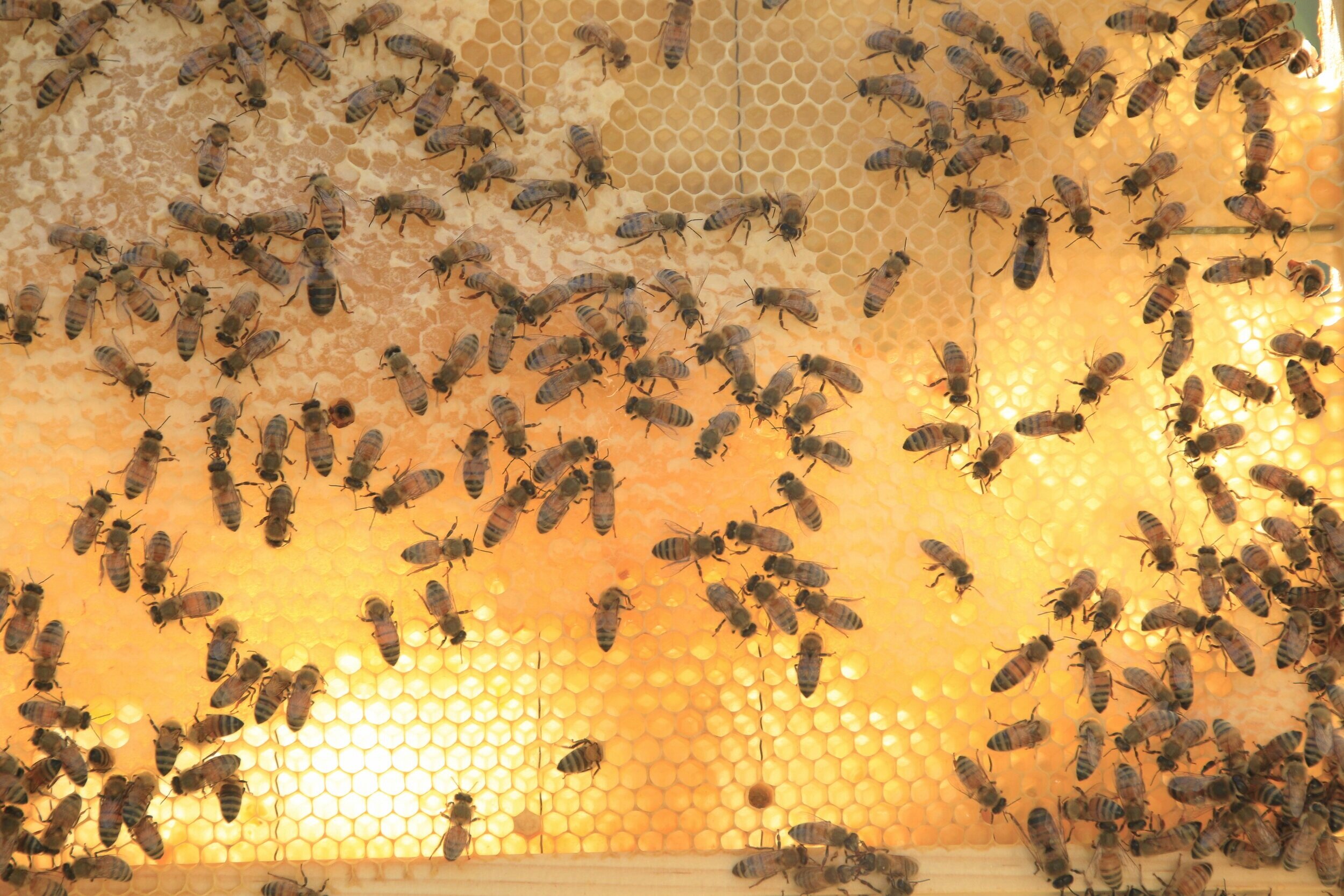Lina is an avid beekeeper whose beloved bees pollinate the neighbourhood’s many vegetable gardens. Below you’ll find year-round updates on the bees, tips to protect our precious pollinators, and musings about what bees can teach us about our own humanity.
The precious pollinators (on whom we depend for most of our food) include so much more than just bees.
Read about protecting pollinators and on responsible insecticide use on the website of the Environmental Protection Authority Te Mana Rauhī Taiao and check out their beautiful “Meet our Pollinators” poster.
Beautiful: The Native Bees of New Zealand. Read more here: https://www.fortheloveofbees.co.nz/native-bees
Fall is here! Give a present to our pollinators and leave the leaves!! 🌳🍂🦋
Here is a special bee behaviour that has mystified beekeepers and scientists alike. Occasionally, bees can be observed outside the hive “dancing” like this in rows… it’s called “washboarding” (because it looks like they are scrubbing the surface of the hive with their legs). Tons of (inconclusive) theories circulate about what this behaviour means: some say they do it to cool the hive, others say it is one of the many ways bees communicate through dance, others say it is what bees do when they have a surplus of bored nurse bees, others say they do it because it’s fun! The one fact scientists seem to agree on is that this dance is only performed by teenagers (so, around 15-25 days of age) after they have finished their duties as “nurse” bees tending to the young inside the hive, but before they have begun their new lives as “workers” who forage in the wild for nectar and pollen. Sounds to me like a classic rite-of-passage behaviour… these party-animals were at it all day and all night!
LINKS ABOUT WASHBOARDING:
See the girl above cleaning her antennae? Check out the amazing video below from Flow Hive about how bees smell through their antennae.
Did you know that a bee’s sense of smell is 100 times more sensitive than a human's?
It finally rained! Waiting out the storm….
It’s been so hot and dry! Bees smell through their antennae to find nearby sources of water. Just like these girls, my bees enjoy drinking from the bird bath.
Cranberry season has begun in New England…
… did you know that cranberries — like almonds, blueberries and ninety other species of crops — depend on bees for pollination? According to the FDA, one third of the food we eat is pollinated by honeybees.
Late-July heat wave! Are you melting? Bees have a natural cooling system: bearding! During extreme heat, the girls keep the hive (which contains their precious babies and fermenting honey) at the optimal internal temperature by draping themselves outside the entrance. This means fewer bees inside (less body heat) and better airflow. Sometimes, you can even see some fanning their wings to push air into the hive. No AC, no problem!
Isabella Rossellini — acclaimed actress, filmmaker, author, philanthropist, model — but this is without doubt her greatest work.
“Yes, human, I’m ready for my close-up.”
The girls capping a frame full of honey.
Ensure that our precious pollinators are protected in Massachusetts legislation on aerial mosquito spraying! Click below for more info.
Pollen comes in every colour of the rainbow! Here are the girls storing up some beautiful yellows and bright oranges.
Speaking of pollen… collecting it can be messy business! Bees clean themselves of all the bits of pollen that stick to their bodies, which they store in the special pollen sacs on their hind legs before flying home to the hive.
June 22 - 28th is National Pollinator Week! Celebrate by embracing wildflowers in your lawn or, better yet, include native plants in your garden!






















